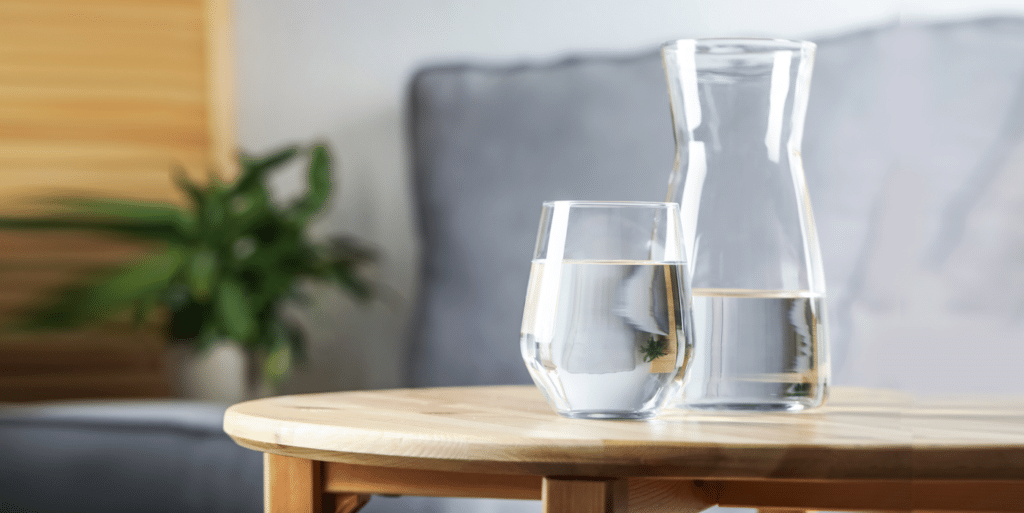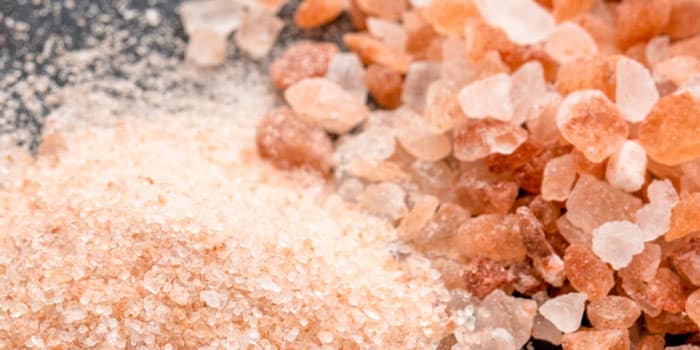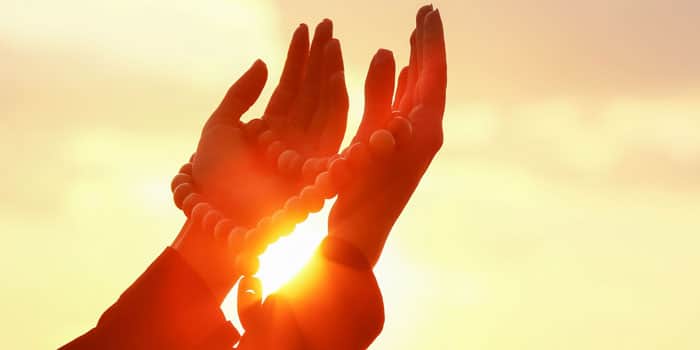There are many tips and tricks that will help you get through your fast (check out some of our previous articles on fasting).
But if I had to boil it down to three tips that you can consistently count on, these are what I would always come back to.
Key Number One: Water
I know you hear this over and over, but it really is that important.
Stay hydrated!
Why is water so important?
Because thirst can masquerade as hunger
Next time you’re hungry, try it and see.
Have a glass of water and wait a bit. You’ll probably notice that you’re no longer hungry.
In terms of being able to push through those fasting hours, this is obviously helpful.
Because of detox
Whether you’re doing Intermittent Fasting or Extended Fasting, your body is healing.
You’re getting rid of a lot of toxins.
You need water to keep those toxins flushed out.
Because it’s easier to get dehydrated during a fast
Most people have a lot of inflammation when they come to fasting.
You’re going to lose a lot of water weight.
It’s easy to get dehydrated if you’re not staying on top of your water intake.
How much water should I drink?
Aim for 64-72 ounces a day and after that drink to thirst.
But I don’t like water!
Sometimes you just need to do things you don’t like.
You can try sparkling waters, or infuse your water with fruit for some flavor.
Just don’t squeeze the fruit into the water.
Key Number Two: Electrolytes
Again, this is something you’re going to hear us say a lot, but for good reason.
Electrolytes can make all the difference in your fast, as far as how easy or how difficult it is.
As mentioned before, when you start losing fat, you’re going to lose a lot of water.
And with that water, you’re going to lose electrolytes,
So even if you’re doing Intermittent Fasting where you have a daily window, you’re probably going to need to supplement electrolytes.
You can take our Dosage Calculator quiz to see exactly how much you need.
What are electrolytes and how will they help my fast?
Electrolytes are key minerals, like sodium, magnesium, and potassium.
They play a major role in body functions.
Low electrolytes can make your hunger and cravings way worse during your fast.
And even more importantly, you’re going to feel really bad if you get low on electrolytes.
Some symptoms of low electrolytes include:
- Headache
- Fatigue
- Nausea
- Rapid or irregular heartbeat or palpitations
- Muscle cramps
- Dizziness
Do yourself a favor and get those electrolytes in!
Key Number Three: Keep your mind busy!
The mind is half the battle.
Actually, when it comes to fasting, it’s probably more like 90% of the battle.
Your mind will try its best to talk you out of your fasting goals, especially when hunger and cravings hit.
If you can find things to keep your mind off of food and off of the fact that you’re fasting, you are much more likely to complete your fast.
Sit down and write out a list of things you can do when you’re tempted to quit.
Here are some ideas you might add to your list:
- Read a novel
- Read poetry
- Scroll your favorite social media feed
- Watch a movie or binge your favorite tv series
- Do something creative (paint, write, crochet, etc.)
- Listen to fasting podcasts or videos
- Play a game
- Put a puzzle together
- Study up on some interesting subject that fascinates you
- Go window shopping
Those are just random ideas.
What you’re looking for are activities that engage the mind.
Make sure your list includes things that you will actually go and do.
Apply our top three tips for a successful fast
Why make things harder than they have to be?
Drink your water, get those electrolytes in, and keep your mind busy.
Easy, simple steps that will make a huge difference in your fasting.
Author: Roo Black

Roo is a fasting coach with over 5 years of experience. She leads the admin team of the Official Fasting for Weight Loss Facebook group – one of the largest fasting communities on social media with over 125,000 members. We highly recommend this group for anyone who is looking for fasting advice or coaching.


